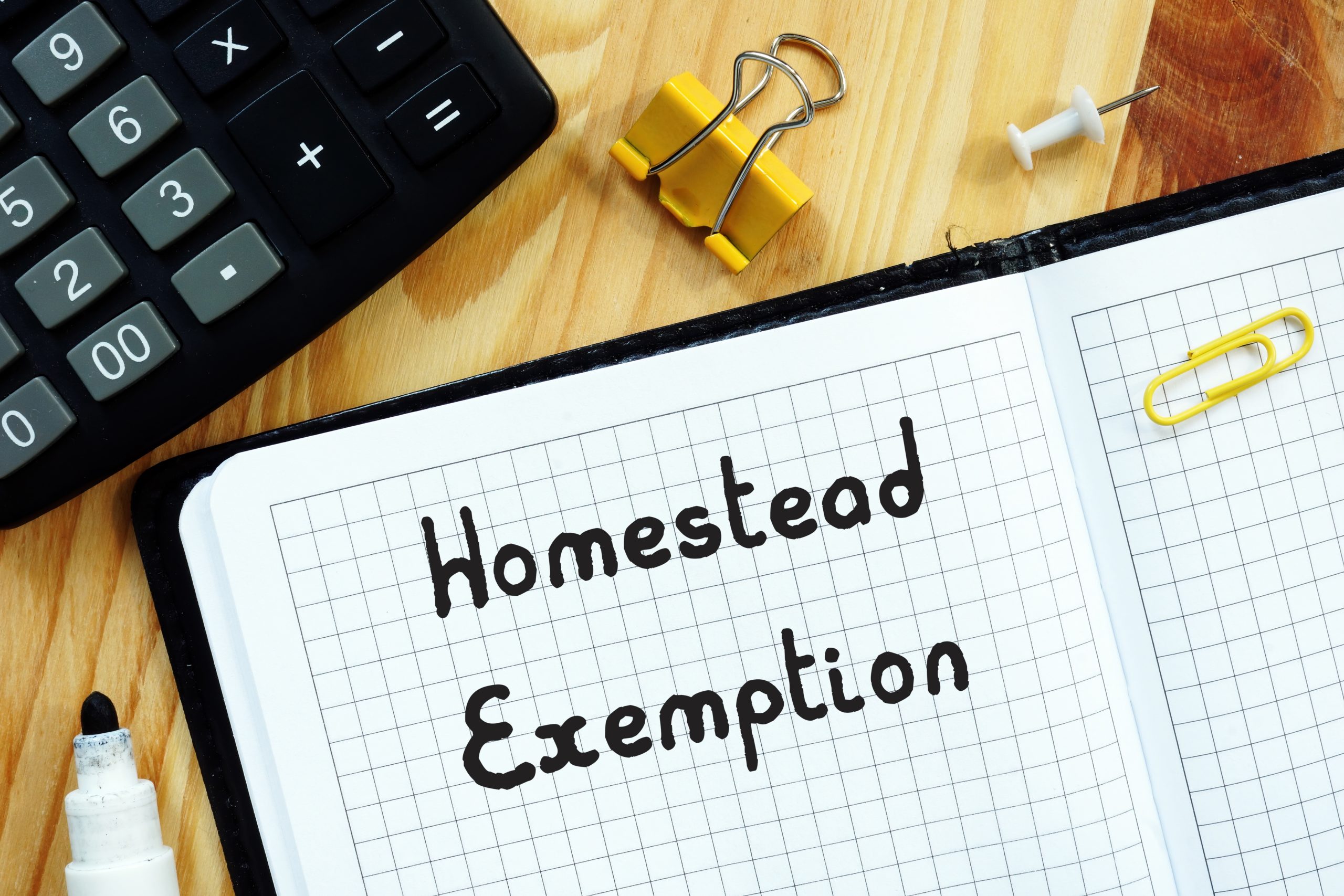We all know that one of the biggest purchases you will make in your life is likely your home. Why wouldn’t you want to protect this investment to its fullest?
You have your mortgage, various insurances such as homeowner’s, MIP, and title insurance, property taxes, home repairs, possible HOA fees – the list goes on and on.
It is safe to say you are putting quite a bit into this investment, so you want to be sure that the value is protected.
That is where the homestead exemption comes into play.
What is a homestead exemption?
This is a law that helps to protect the value of your home.
When tax season rolls around, a certain dollar amount or percentage of your home’s value will be waived from your property taxes.
Just like the name states, this exemption can only be used on your primary residence.
How does it work?
Realtor.com writes, “Homestead exemptions usually offer a fixed discount on taxes, such as exempting the first $50,000 of the assessed value, with the remainder of the home’s value being taxed at the normal rate. For example, using a $50,000 homestead exemption, a home valued at $150,000 would be taxed on only $100,000 of assessed value.”
Homestead exemptions vary by state, but Florida does have one of the most generous exemptions.
Florida’s homestead exemption works by letting you claim up to a $50,000 homestead exemption on your primary residence. If your assessed value is more than $50,000, you can get an additional $25,000 exemption that excludes school taxes.
So, the first $25,000 of your home’s value is exempt from all property taxes, and $25,000 after that would be taxed normally. Any remaining value, up to $25,000, would exclude school district taxes.
Filing for homestead exemption
You can almost always file online which makes this process efficient and hassle-free. There are also mail and walk-in options for those who do not have computer access.
Find your local property appraiser’s website and locate the form to fill out.
You will need to have your driver’s license and social security number. To establish residency, also make sure to have your vehicle registration or voter registration card on hand. You may also need to have one or more of the following:
- Bank statement with your mailing address
- Local employment
- School name of dependent children
- Utility bill with your mailing address
You must have legal or equitable title to the property as of January 1st.
You may also file a homestead exemption for a mobile home if you own the land it resides on.

